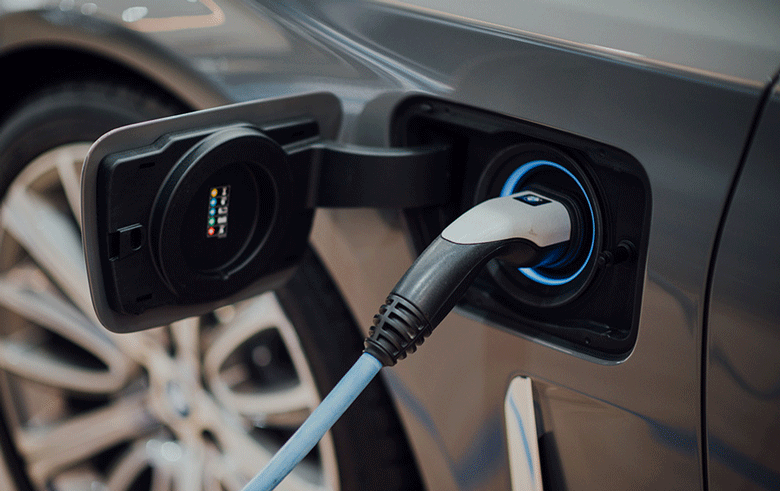Until last winter, the transition from good-old gasoline cars to cutting-edge electric vehicles (EVs) felt like a distant, probably leisurely affair. To many in Maine, it still does. And why not? You don’t see many EVs around and nobody seems to be trying very hard to sell them to Mainers. EVs still accounted for barely over 2 percent of all U.S. light-vehicle sales in 2020.
But the calm is deceptive. Change is coming and it’s coming fast, for some very good reasons. First, carmakers everywhere see no other way to meet tightening mileage and carbon-emission standards. Tesla earned over $1.5 billion last year selling emission credits to other automakers who exceeded these standards. Paying such huge sums to competitors is not just galling, it’s untenable.
A look at the transition from horses to automobiles suggests radical transport change can come in a single decade.
Reinforcing this are outright bans on diesel and gasoline passenger vehicle sales being adopted by countries and cities worldwide. Last September, California Gov. Gavin Newsom issued an order “requiring sales of all new passenger vehicles to be zero-emission by 2035.” California and other states that follow its emission rules—frequently including Maine, although not yet for the gasoline vehicle ban—account for roughly 40 percent of U.S. auto sales.
In June, Canada announced plans for a similar 2035 nationwide ban.
Most importantly, auto companies are starting to make EVs people want to buy, emphasizing performance, price, and prestige.
Indeed, there’s every likelihood that the transition to EVs will be faster than even the EV optimists imagined a year ago. GM’s aim to go all-electric in light vehicle sales by 2035, announced in January to gasps of amazement, now looks tame. Since then, Ford has said it expects EVs to make up 40 percent of its global sales by 2030 and it has upped planned EV development spending twice, first to $22 billion and then to $30 billion by 2025. Volkswagen has doubled its 2030 EV sales targets to 70 percent for Europe and 50 percent for the U.S. and China.
This acceleration didn’t come out of nowhere. For EVs, 2020 was a game-changer. In Europe (UK included), EV sales surged by 137 percent from 2019, leaving EVs with over 10 percent of all car sales. So far this year, the EV market share is 16 percent.
In the U.S., 2021 could well be a similar EV breakthrough year. Through May, EV sales were up by more than 100 percent year-on-year, and in May alone, the yearly gain was an astounding 329 percent, according to energy research firm Zpryme. For Mainers, the big gainer in EV sales has been Ford’s Mustang Mach-E crossover, mostly with the all-wheel drive feature that has helped make Subarus so ubiquitous in this state.
Still, even if automakers are in a rush, will consumer tastes change that quickly? A look at the transition from horses to automobiles suggests radical transport change can come in the span of a single decade. In 1907, only 140,300 cars were registered in the U.S., according to Scientific American. By 1917, the number of registered cars had multiplied 33 times to almost 5 million.
Fast-forward to 2020. U.S. sales of EVs totaled just 345,300, out of passenger vehicle sales of 14.5 million. Multiplying that 345,300 by 33, to match the 1907-17 surge, would push EV sales to nearly 11.4 million by 2030. This is not a scientific forecast. It just demonstrates what’s possible. But it’s easy to imagine how momentum behind EVs may build, and gasoline and diesel vehicle sales collapse.
What factors will people consider in 2030 as they think about which new car to buy if over half of new-car sales are electric? Will they worry about being able to get a decent price for a used gasoline car? How about replacement parts?
Certainly, automakers won’t be designing sexy new models of the gasoline vehicles they are phasing out. If you think about it, who’ll want to be the last person on their block to buy a gasoline car?
Sarah Miller is a semi-retired international energy and business journalist and editor. She writes the Tales from the Transition blog for the Penobscot Bay Pilot, where this first appeared. She lives in Camden where she serves on the town’s energy and sustainability committee and the statewide climate activist group Climate Matters Maine.





